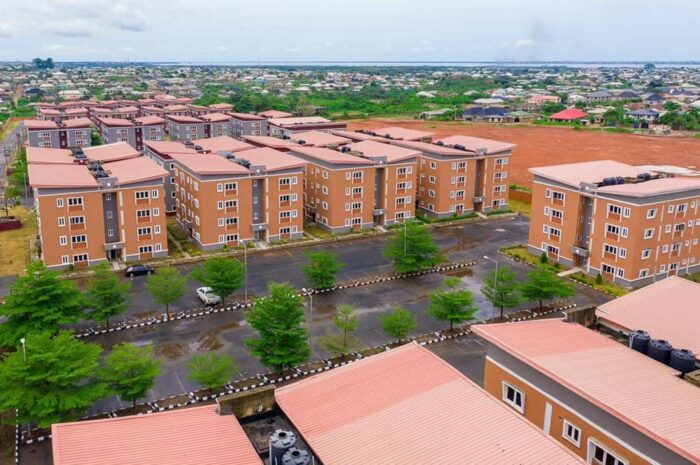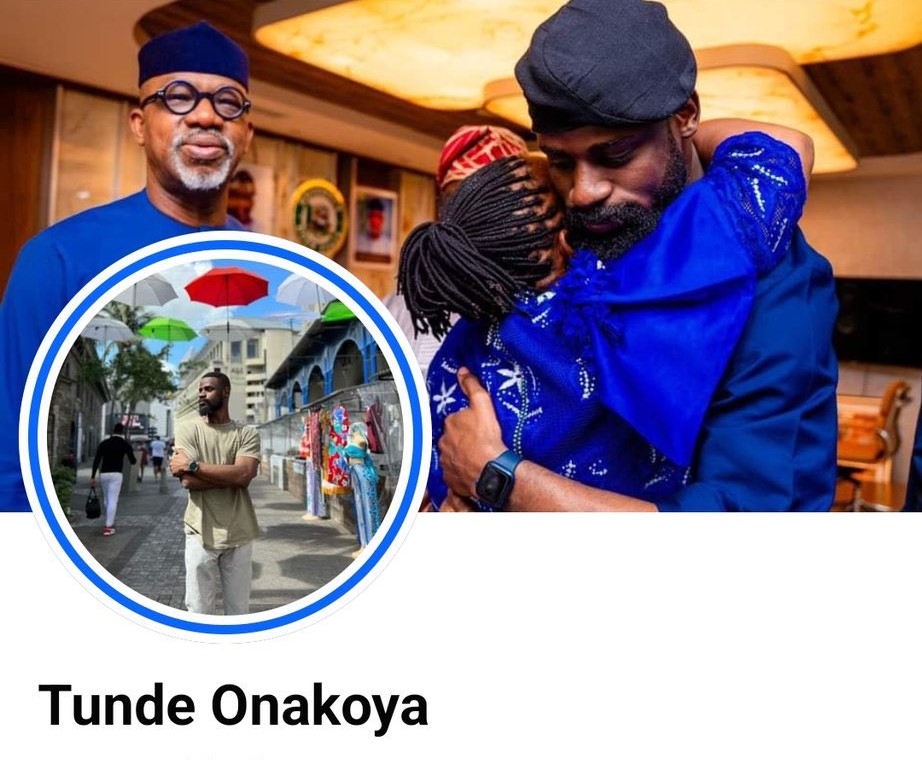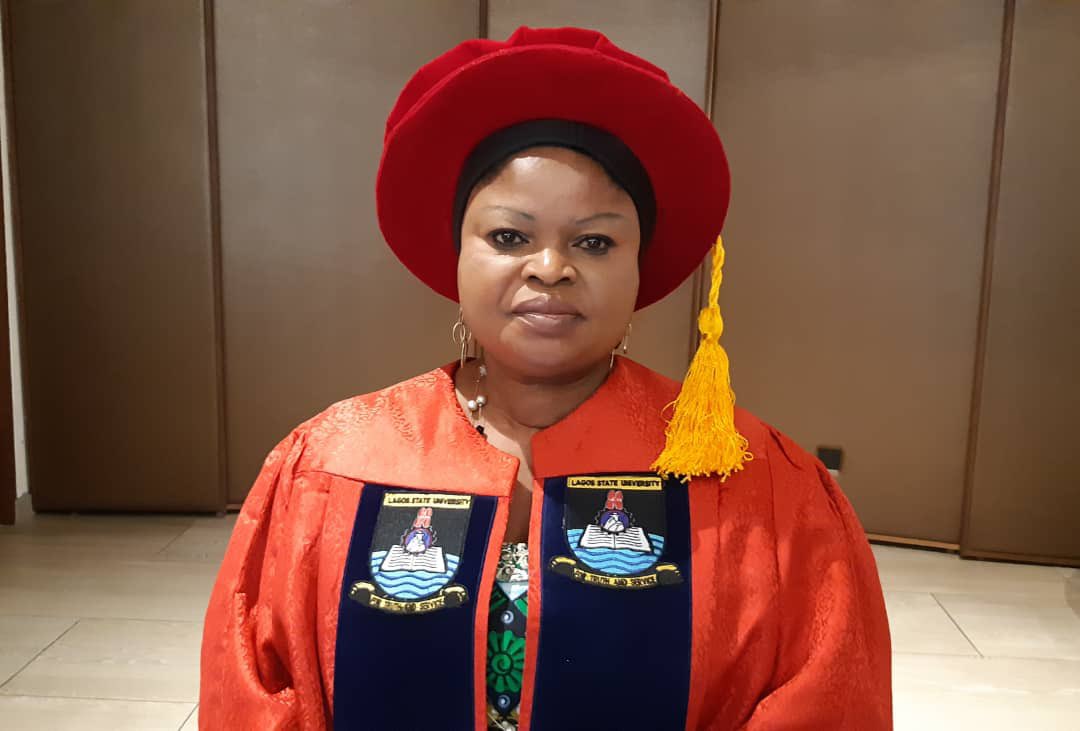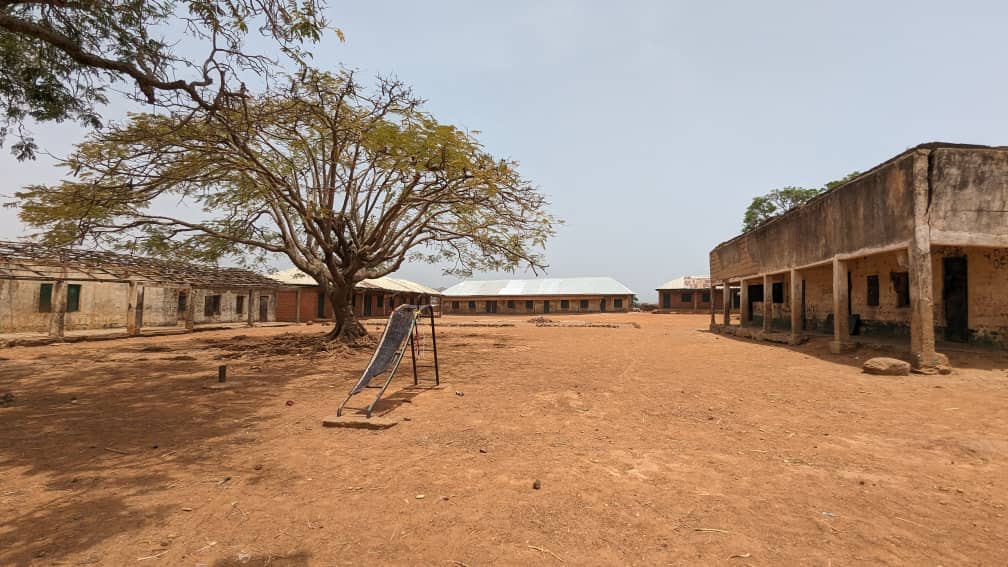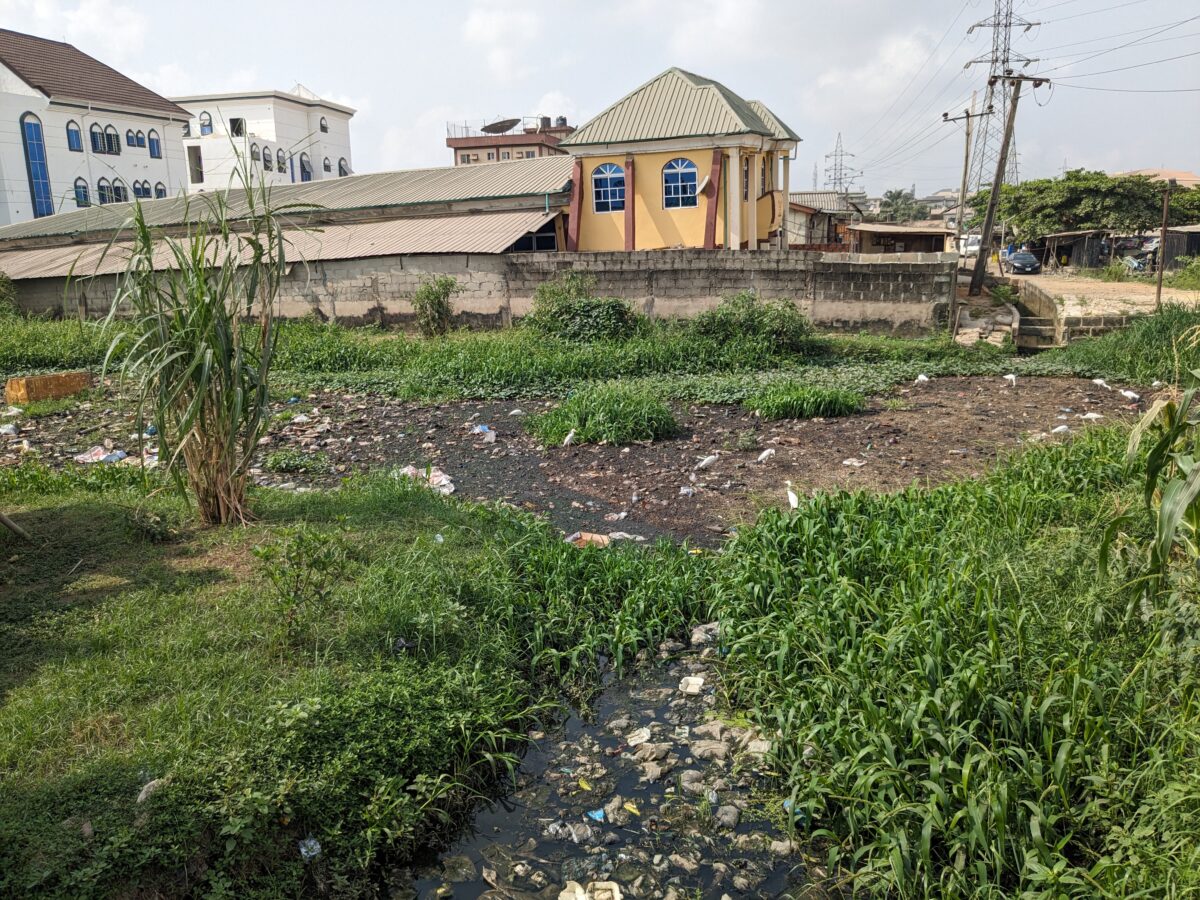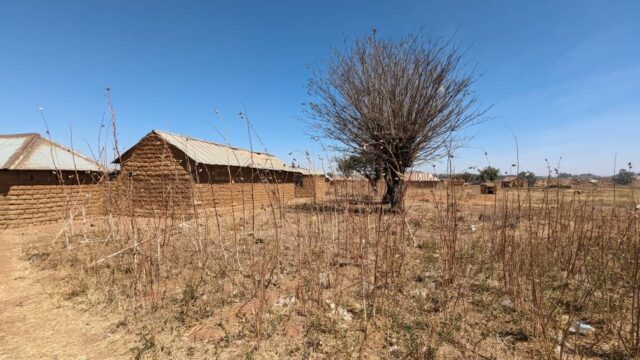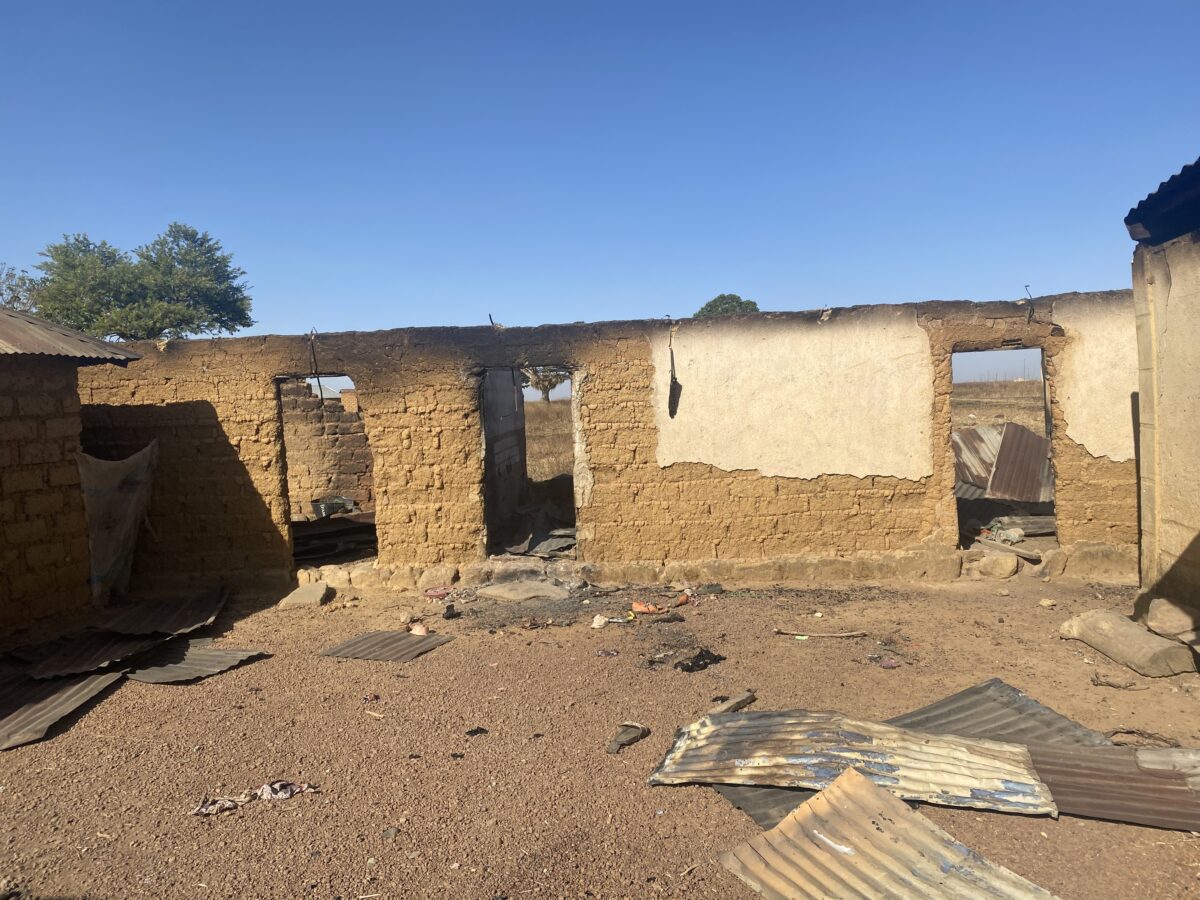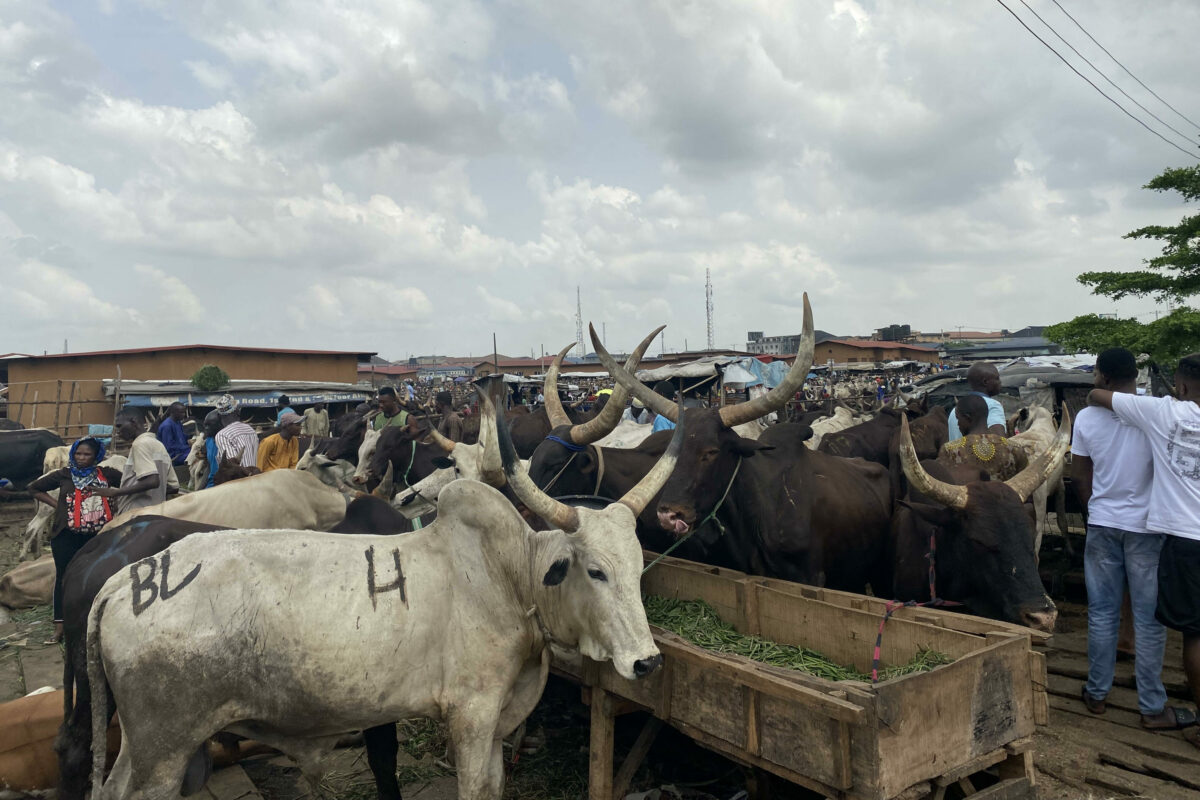Lagos State is the largest economy in Nigeria, it has been for decades. Lagos is also one of the smallest regions in Nigeria by landmass. The state still has a housing deficit of 3 million units. Why are the housing options from Lagos State Government less of a solution? Why does the state government resort to a more expensive private-styled housing philosophy? How are the residents in and out of the Lagos housing schemes paying for this? FIJ’s Joseph Adeiye reports.
IGANDO, Lagos — Four eyes intently watched the half-open black gate of Lateef Kayode Jakande Garden Estate as this reporter approached on a late July afternoon. Two different voices had already called “Hello” and “Where do you want to go to?”.
No one could just walk into a Lagos housing estate uninvited, I soon found out. The men at the gate made it clear that even a journalist wouldn’t receive access except if they lived in LKJ Gardens or an occupant invited them in.
This reporter eventually crossed the black gate on an occupant’s invitation about a week later.
LKJ Gardens’ brick-layered roads were the same as the 100-metre perimeter on the other side of the gate. There were more cars parked by the roadside and more people walking than there were cars driving to and fro.
The residents I met in this housing estate called themselves the chosen few in a state battling a silent housing crisis. Lagos State has not met even 50 percent of its residents’ housing demands. Though private property companies and informal building contractors contribute their quotas, the state still has a housing deficit of about 3 million units.
Speaking with residents of Lagos housing estates, FIJ has found that the state government’s efforts to reduce the housing deficit in the past 20 years have not been enough. Mortgage plans are still far out of the reach of most of its residents, affordable housing is not affordable, and the state fails to develop cost-effective housing options.
Those identical structures seen from a distance became real living quarters and proved the type of housing and the type of people who could afford to live there were limited.
This is Lagos, a state where 500,000 people immigrate annually and contribute to a growing multimillion housing demand met by a few thousand housing units in supply every year. Middlemen in state government agencies are exploiting the unhealthy demand-supply ratio to make money off potential buyers of Lagos housing estate units.
The state government has not cared enough, and it has decided to stick with the same strategy for the next years of housing hell.
HOW MORTGAGES WORK
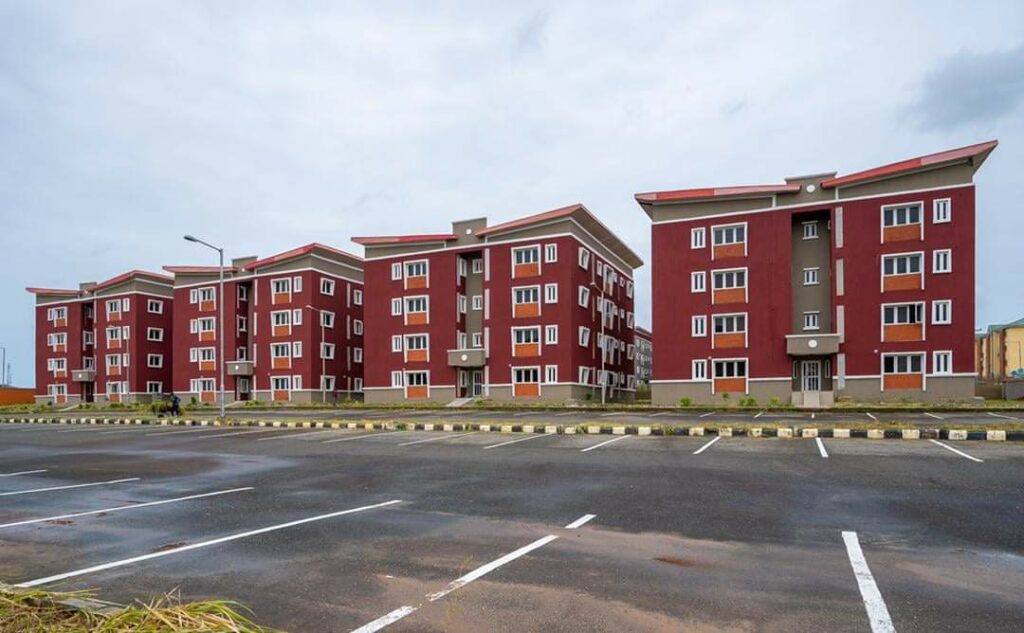
Oluwafisayo Ogunjimi, a digital creator, lives in one of the 12 Lagos housing estates built in the past 20 years. He told FIJ that there was a mortgage plan available to all prospective buyers of Lagos State housing units that seemed fair.
“For payment, there’s mortgage where you pay 5 percent upfront and spread the rest for ten years, then there’s outright where you pay once and for all,” he said.
Mortgages are specific loan types used to purchase real estate, such as a house or an apartment. A lender (usually a bank, a financial institution or an agency set up by the government) would provide the money needed to buy the property. In return, potential buyers agree to make regular payments on a monthly basis to repay the loan over a specified period.
When people apply for mortgages, the property serves as collateral for the loan. This is why the lender could take possession of the property through a process known as foreclosure if the lender fails to make the stipulated mortgage plans. Mortgage plans can run for 10 years to 30 years. The plan could be modified to run for longer or shorter periods.
Purchasing properties is no mean feat, as desirable houses are often too costly to buy outrightly. In order to own these desirable properties, potential buyers subscribe to available mortgage plans.
While a mortgage plan is recognised worldwide as a reasonable approach to owning properties, some mortgages are dangerous for potential buyers.
Some mortgages often come with higher interest rates and fees, making them more difficult to afford. In this case, it is only a matter of time before the lender defaults a couple of times. Foreclosure automatically follows and they lose the property as collateral.
An interest-only mortgage plan is an unfavourable option for many potential property buyers too. The potential buyer would initially only pay the interest on the loan for a certain period without reducing the principal amount. The payments skyrocket and the result is a debt higher than the initial loan amount enough to purchase the property.
Adjustable-rate mortgages (ARMs) also carry some risk: the interest rate can change over time and the monthly payments become too volatile for the mortgage subscribers to commit to. It’s important for borrowers to carefully research and understand the terms of any mortgage they’re considering to avoid potential pitfalls and ensure they choose an option that fits their financial situation.
The mortgage plan Ogunjimi told FIJ of was the Rent-to-Own Policy former Lagos Governor Akinwunmi Ambode introduced.
“Through this policy, prospective home owners make a 5% down payment, take possession and pay up the remaining balance as rent towards the ownership of the property over a period of 10 years,” the state government’s Rent-to-Own Policy booklet states.
READ ALSO: ARROWS OF GOD: One of Nigeria’s Biggest Orphanages Is Trading Babies for Cash
MAJOR LAGOS STATE HOUSING SCHEMES IN THE PAST 20 YEARS
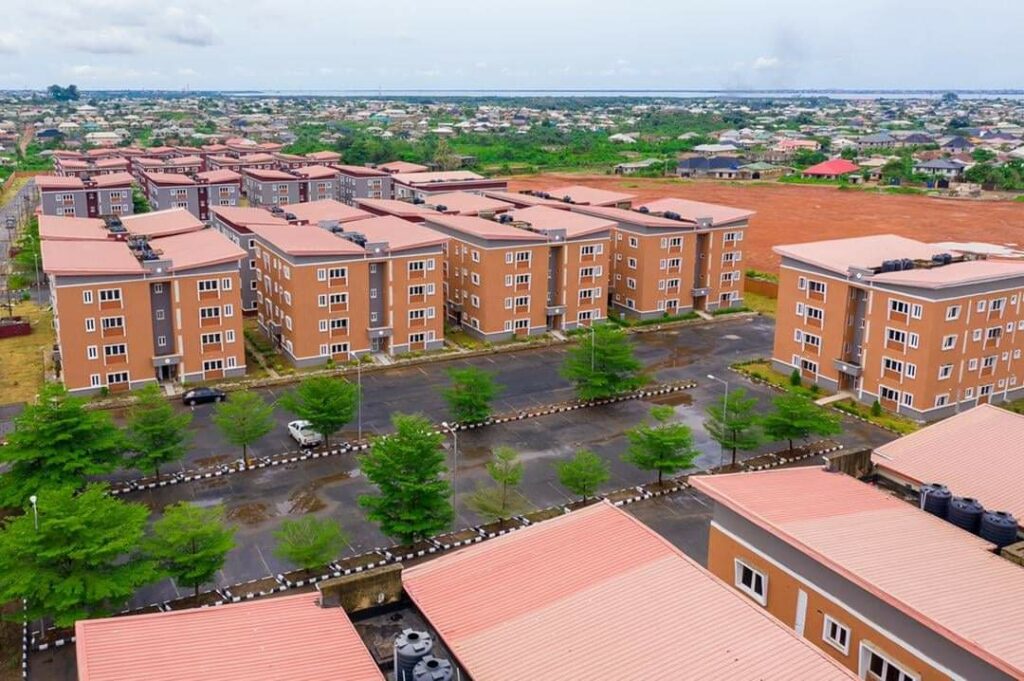
Lateef Jakande, Lagos State Governor between 1979 and 1983, left a relentless legacy, including numerous state-backed infrastructure ventures such as low-cost housing estates. Today, many Lagos residents remember Jakande as the governor who made giant strides in cutting down Lagos State’s housing deficit in the 1980s.
In his time, Jakande oversaw the construction of over 21,000 housing units in Lagos. His famous low-cost housing estates still stand in Abesan, Ipaja, Badagry, Amuwo-Odofin, Ijaiye, Dolphin, Oke-Afa, Iponri, Epe, Surulere, Iba and Ikorodu.
“Subsequent administrations have tried to bridge this housing gap without success. The major reason was found to be the lack of access to affordable mortgage finance,” the state government wrote on its mortgage scheme website.
“For the first time therefore, through Lagos HOMS, government has intervened in housing with a focus on affordable mortgage finance which is believed to be more sustainable than previous housing intervention policies.
“The Lagos Home Ownership Mortgage Scheme (Lagos HOMS) is a government initiative created to encourage and support home ownership of First-Time Buyer (FTB) residents of Lagos State to purchase decent and affordable homes through the provision of accessible mortgage finance. Lagos HOMS is administered by the Lagos State Mortgage Board (LMB)”.
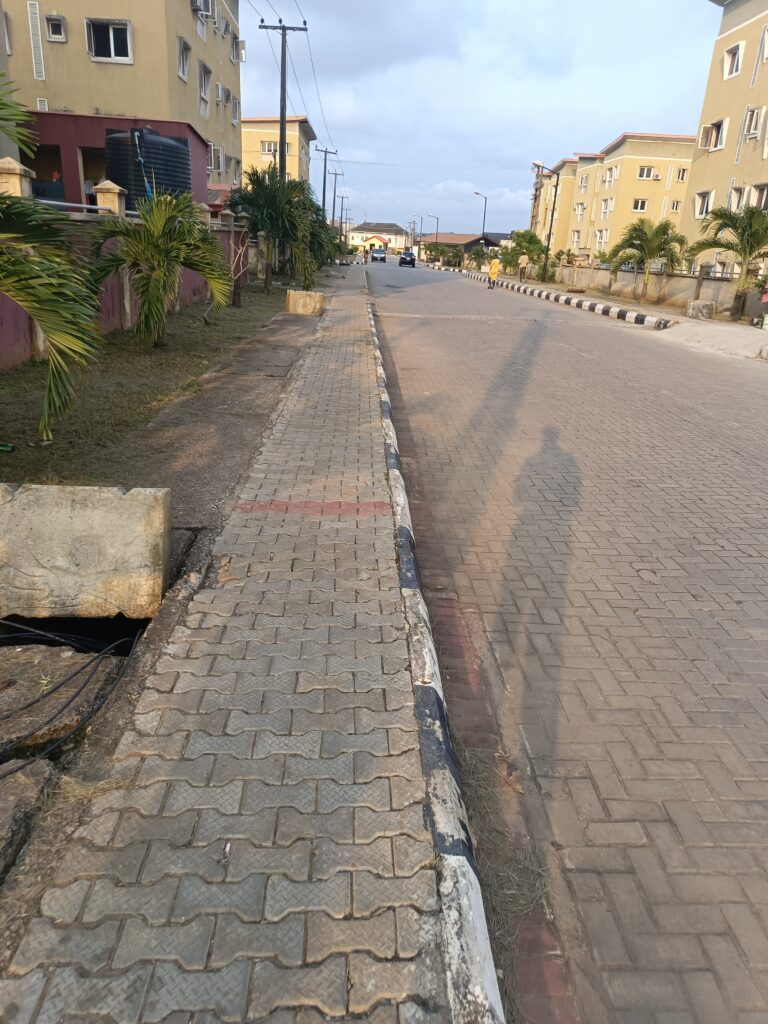
The current Lagos State Government claims it managed only 5008 affordable housing units in the last 20 years. Lagos HOMS housing estates are:
- Ajara Estate, Badagry 420 units
- Chois City, Agbowa 400 units
- Sangotedo Estate, Sangotedo, Eti-Osa 1,188 units
- Iponri Estate, Surulere 132 units
- Odo-Onosa/Ayandelu 660 units
- Igbogbo IIB Housing Estate, Igbogbo Ikorodu 360 units
- Igando gardens, Igando Alimosho 492 units
- Egan Igando Housing Estate, Alimosho 684 units
- Oba Adeboruwa Estate, Igbogbo-Ikorodu 256 units
- Hon. Olaitan Mustapha Estate, Ojokoro 48 units
- Alhaja Adetoun Mustapha Estate, Ojokoro 32 units
- Sir Micheal Otedola Estate, Odoragunshin, Epe 336 units
“People buy forms and are in the queue. Once the unit is completed, they allocate based on the forms on ground,” Ogunjimi told this reporter.
“Unfortunately, there are no more estates, and I understand there is no land to build for now.”
READ ALSO: Inside Lagos Estate Where Residents Are Getting Ready for Disruptive Flood
AFFORDABLE HOUSING ISN’T AFFORDABLE
Ola Lekan, an LKJ Gardens resident, was the first person to give FIJ access into the state housing estate for an interview.
Lekan had outrightly bought a three-bedroom apartment in LKJ Gardens because he could afford it, but he made sure to inform me that affordability was subjective. This was a man who could pay what would build an actual house for an apartment.
Lekan recognised that not many Lagos residents possessed the same purchasing power he had. He also highlighted how the demand for affordable housing tilted dangerously against supply for the state government.
“I think the first question has to do with if the government is providing enough housing estates. I am talking about the forces of demand and supply. We do not have enough, so we cannot deem this one to be affordable,” Lekan told FIJ as he sat on a concrete patio in an LKJ Gardens minipark.
“I know that there are two ways around this: Number one is the rent-to-own scheme. Number two is outright buying. Now, if you are doing a rent-to-own scheme, I must confess to you, it is very very difficult because the government prioritises civil servants and political appointees. They prioritise them a lot. So, if you do not fall within those categories, it is very difficult to get a rent-to-own scheme. But if you are a private person and you have your cash, you still have to do the PR. This PR means that somebody is telling people to bring one million naira and they will help you process it (with favour).
“For me, looking at all of these things, affordability doesn’t come into play; it looks more like nepotism and favouritism — our own of our own. Those are the people that have access to those units. Another thing is that many of the buyers actually purchase the units for investment. So, let me say a political appointee by virtue of being in government gets three or four slots, they pay and they actually rent it out. That is where it gets to regular rents.
“The content of the property is one bedroom, two bedroom and three bedroom apartments. There are twelve flats in each block. The long and short of it is that the system is not as friendly as you would imagine it to be. Something that is not open to everybody or you have to start scheming or paying millions before you can afford, is that really affordable? Or is that really accessible to young people? I really do not think so.”
ILLEGAL BUSINESS UNNOTICED
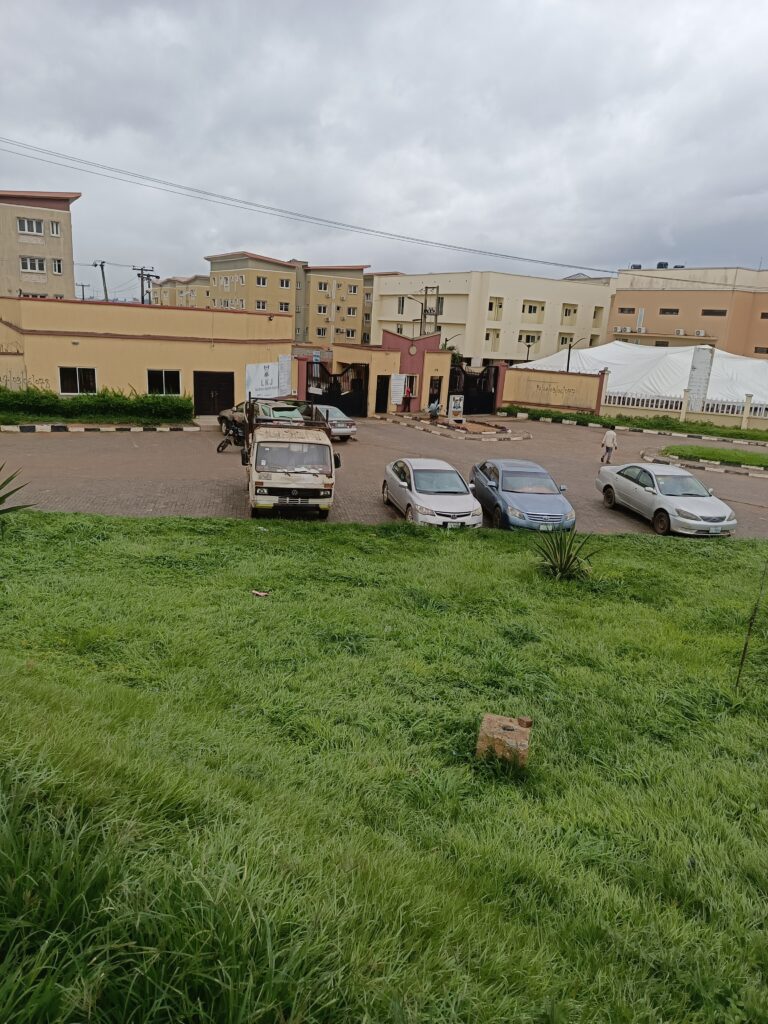
Rent-to-own or buying outright? It doesn’t matter; you have to grease peoples’ palms to have a fair chance of securing an available apartment in one of the state housing estates.
“I don’t have the figures of those who got through connection, but one thing I know for sure is that the allocation was fair,” Ogunjimi claimed.
Another Lagos HOMS buyer was more detailed.
“I am not a civil servant, I bought my unit outright. We had to bid. To bid successfully, you have to know someone who would let you know that there is an opening because there are different housing schemes in Lagos,” Lekan said when he spoke about getting an apartment in one of the Lagos HOMS estates.
“So, they could know those units that are still available. People who want to buy these properties bid, and when you bid, you are not just bidding with an ordinary mouth.
“It is political. I must be very honest with you. When you are bidding the way I told you we did, there are agents within government that help you push your bid because a lot of people are interested. To be very fair to them, it is quite affordable. The cost is quite affordable compared to outside this scheme.
“A lot of people want to buy it because it is affordable. ‘Affordable’ is relative, but the cost of going to replicate this outside… It is a finished property with everything ready in this kind of environment. Many people want to live in these schemes, so the bids are long and that is where these people who do the PR feed from. They would say ‘if you are interested, I have a slot, pay me this'”.
Even after buying an apartment, residents felt that people in the state government were siphoning money from facility management.
Lekan blamed a poor maintenance culture in Nigeria and ingrained corrupt practices within government institutions.
“I moved into my own flat and I realised that the plumbing works were poorly done. Water was either coming from the ground or leaking from some other place. So, each and every one of us spent money on one or two issues,” said Lekan.
“We had to resolve these issues ourselves despite the fact that the government had given the contract to some people and they either did not do it well or they supplied inferior materials. The facility management we currently face here is very ugly. The current person that we have is not doing so well. Every year, there is a service fee of about N60,000. We won’t get to half of the year and they will say that the money has finished. A question of accountability comes to play. People begin to ask questions. We contribute extra money for this service; it’s very frustrating.
“Sometimes, the grasses are overgrown, LAWMA are owed money and we have no water. So, people begin to cry and make a whole lot of noise just so they can have these services up and running. He would say the money is finished. What we do as an estate is that we contribute money so that we can resolve these challenges, and getting the facility manager to leave is a headache because we didn’t appoint him. He was appointed by the government; you see the same corruption that we talk about. When they appoint you somewhere, and maybe you are making returns for someone, it affects the efficiency of what you are doing.”
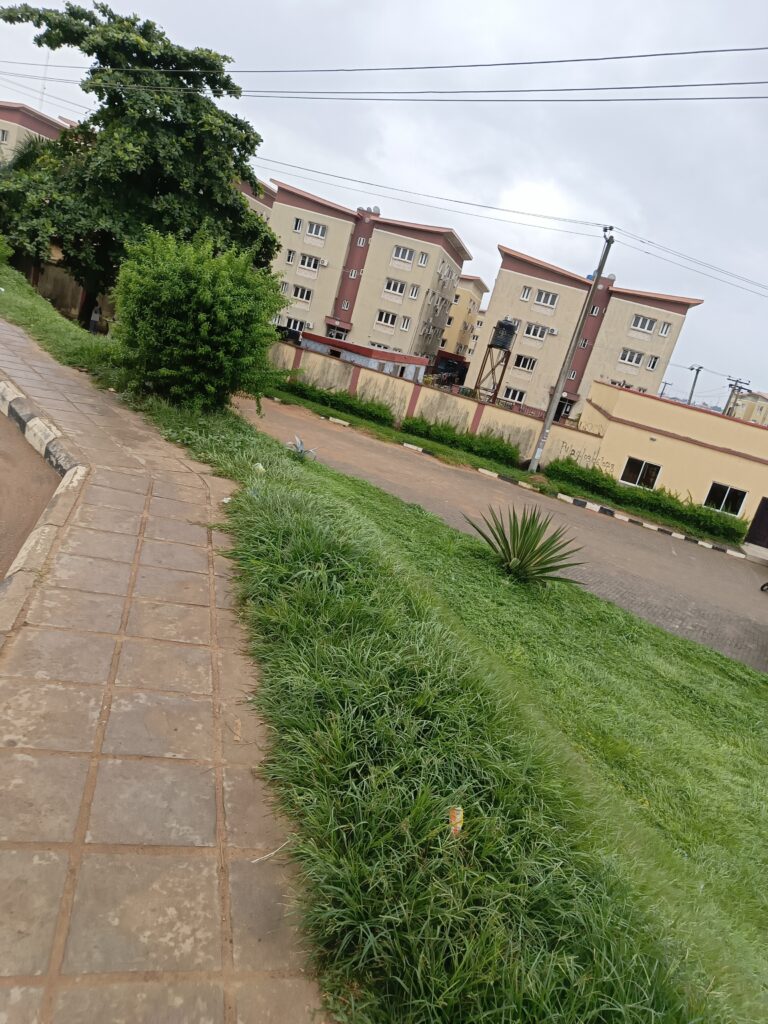
According to the Rent-to-Own Policy booklet, the people who buy Lagos HOMS properties should not sell them. There is a clause warning buyers not to resell.
The Rent-to-Own Policy booklet states that its estates have an owner-occupier policy. This means that buyers must live in the home they buy. You cannot buy to let.
FIJ now knows that some Lagos HOMS clients buy housing estate units to not only rent out but resell at a profit.
“…there will be periodic checks to make sure that home owners comply,” the Rent-to-Own Policy booklet states. However, some owners resell their homes.
Ogunjimi also told FIJ that not just home owners live in state-run housing estates, and that some people buy and rent to tenants.
LAGOS STATE GOVERNMENT’S AGE-LONG AFFORDABILITY MISTRUTHS
No true low-cost housing estate has been established in Lagos State in the past two decades.
The state’s ministry of housing often sneak the word ‘affordability’ into speeches and statements, but how affordable are the state-run housing units today?
“A bedroom in Igando sells for 7 million, the same flat goes for less in Ikorodu and much more in Surulere and Lekki. So, location matters in the pricing, but quality is all the same,” Ogunjimi told this reporter in March.
Lekan had already highlighted the relativity of affordability in 2023.
The prices of the few Lagos HOMS units left have skyrocketed. Lekan said that a three-bedroom apartment in LKJ Gardens was going for 18 or 15 million three years ago. Two-bedroom apartments were about 11 or 12 million and one-bedroom apartments were about 8 million naira per unit.
“Now, today that people have taken possession and they want to resell after three years, it is expected that the property would have appreciated, and I already see out there that a three-bedroom apartment property is going for N30 or N35 million, which is really high,” Lekan noted as he gazed past the road into a hard-surface tennis court.
“Two bedroom apartments are going for as high as N25 million, while one bedroom is going for as much as N18 million or N15 million.
“The government cannot control these prices, but they try to make their properties cheaper. If a Victoria Crest Homes sells a house for 50 million, the state government tries to go there and sell for around 30 million. Victoria Crest will make money, but the state government will also make a profit. Government has subsidised housing to try to make it affordable. They would claim that they are providing affordable housing, but the government would never admit making a profit.”
LAGOS CAN BUILD AFFORDABLE HOUSING BUT…
Lagos State has struggled with some challenges so obvious and stark that non-state actors get involved for the business opportunities. Government’s involvement is ideally from a position of intervention.
When asked about the future of affordable houses in Lagos State, the government said it had a plan to collaborate with private investors.
The Lagos Affordable Public Housing (LAPH) working with investors and private developers will not birth a not-for-profit scheme. Quite the contrary.
“To ensure that units are available for the Rent-to-Own scheme, Lagos State Government is presently constructing more housing units, the State Government is partnering with private developers and investors to provide 20,000 housing units in the next 5 years under the Lagos Affordable Public Housing (LAPH),” the Rent-to-Own booklet states.
FIJ approached the state government for questions about LAPH and its failure to curb the habit of buyers renting or reselling Lagos HOMS units.
Kamar Olowoshago, the permanent secretary at the Lagos State Ministry of Housing, was unavailable on two visits to his office. Olowoshago’s secretary refused to give FIJ a phone number or email address to reach the permanent secretary directly.
The public affairs unit at the ministry received FIJ on Tuesday and promised to relay questions for the permanent secretary to Olowoshago by Thursday, but at press time, FIJ had got nothing from the permanent secretary.
Produced with support from the Wole Soyinka Centre for Investigative Journalism (WSCIJ) under the Collaborative Media Engagement for Development Inclusivity and Accountability project (CMEDIA) funded by the MacArthur Foundation
Subscribe
Be the first to receive special investigative reports and features in your inbox.


